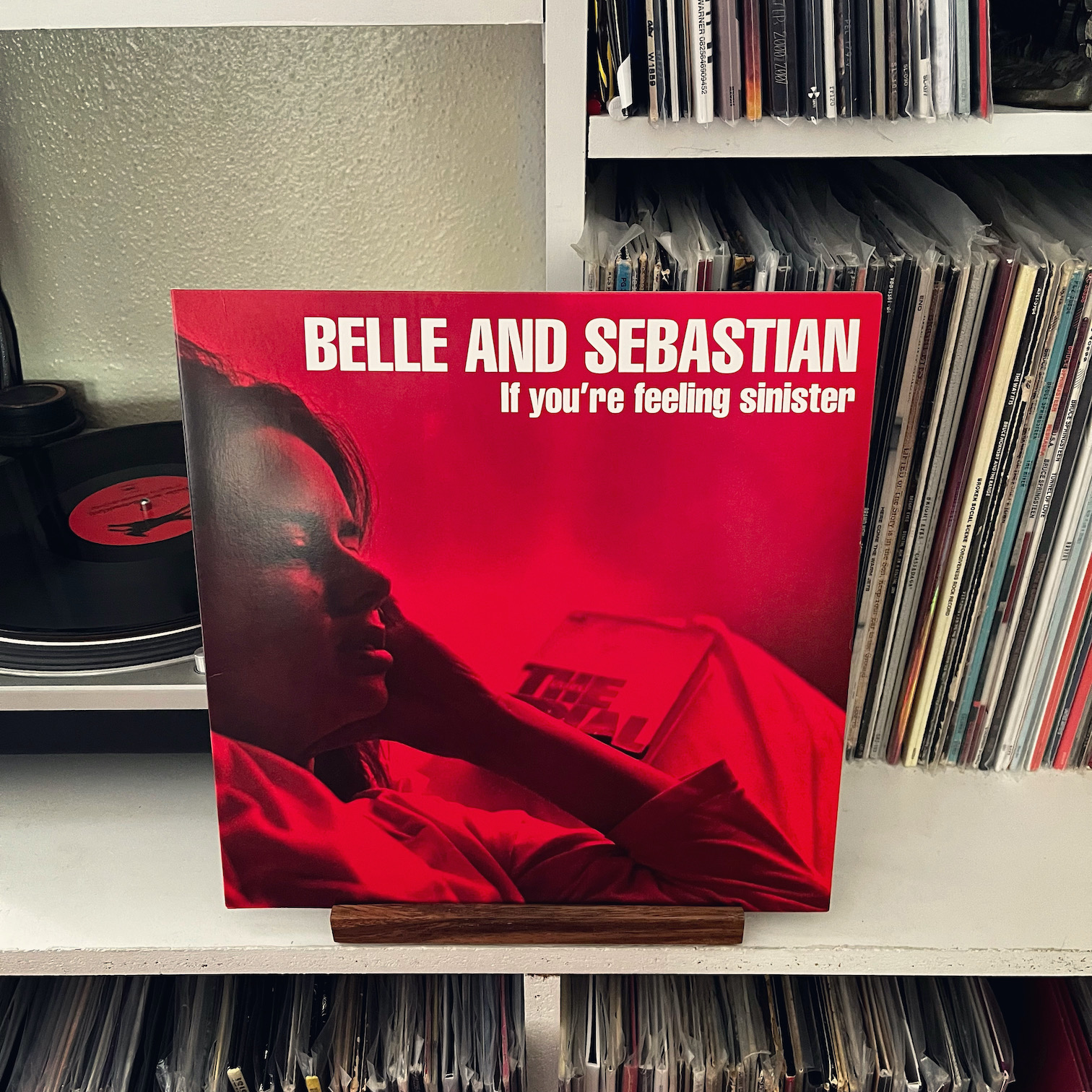
For the life of me, I don’t understand why it’s taken me almost twenty years from falling in love with this record to purchasing it. As a punk kid coming into college spinning emo, hardcore, and metalcore, Bell & Sebastian felt woefully uncool. Hushed, bookish folk songs about college sexcapades, chronic fatigue syndrome, and complicated relationships with local veterans don’t exactly hit the same way as, say, Sunny Day Real Estate, mewithoutYou, or Norma Jean.
But something about Stuart Murdoch’s sardonic wit and the understated whimsy of the arrangements embedded itself in my flesh like a fishhook, and no amount of too-cool punk attitude could pull it out.
Even more remarkable than the writing is that it even got a following in the first place. In 1996, grunge was waning, with Britpop, alt-rock, nu-metal, pop punk, and emo fighting like crabs in a bucket to get on top. The underground scene was filled with various noisy, lo-fi acts like Pavement and Neutral Milk Hotel. Record labels were still signing noisy rock acts like Sonic Youth and Drive Like Jehu trying to find the next Nirvana. Meanwhile, boy bands, hip-hop, and R&B dominated the pop charts.
And into this deafening crowd, Stuart Murdoch strummed his acoustic guitar and whispered, bringing in friends to play piano, horns, harmonica, and various other instruments that were decidedly not rock-and-roll. Hell, the most electric moment on the record is the moment halfway through “Stars of Track and Field” when Murdoch is joined by a full band on a haunting crescendo through the chorus. The piano intro of “Seeing Other People” even sounds like it belongs in a Charlie Brown special.
But somehow, the introspective quietness of this record is incredibly effective, creating a sort of Trojan Horse for Murdoch’s lyrics about sexual deviance, mental illness, threats of violence, and other less-than-wholesome lyrics. As a side note, I’ve been wondering lately if Belle & Sebastian or My Bloody Valentine were The Most Scottish Band of All Time, where one sings pleasant pop songs about unpleasant things and the other covers pleasant pop songs and makes them as unintelligible and loud as possible.
Despite its unassuming nature though, If You’re Feeling Sinister became one of the most influential records of the decade, even if it did take a few years for its influence to spread. This record opened the door for similarly bookish acts like The Decemberists, Sufjan Stevens, The Shins, Iron & Wine, and Death Cab For Cutie, not to mention the hordes of bedroom artists recording whisper quiet music on their laptops or smartphones or tape decks and releasing them to Bandcamp.
Even besides its influence, it’s just one of the most charming records ever. Only the most hardened of hearts can hear “Me and the Major” or “If You’re Feeling Sinister” or “Like Dylan In the Movies” and not at least tap their toes. It’s not a perfect record, but it might be one of the best ones.